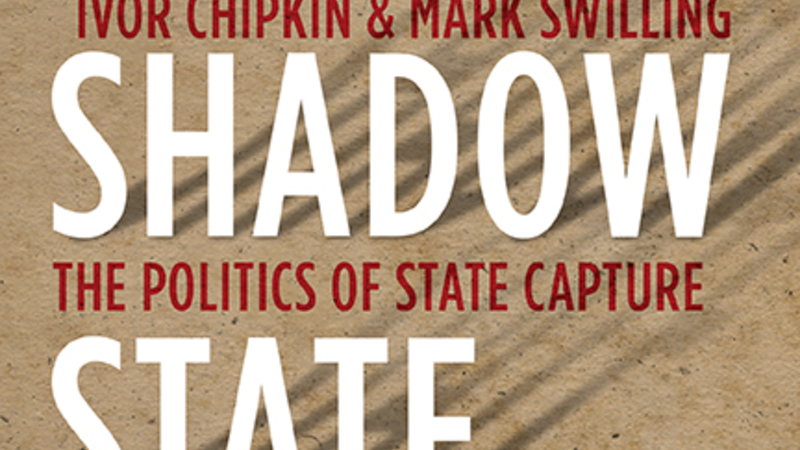 South Africa’s fragile democracy was protected from kleptocratic state capture by the “galvanizing action” of a vibrant coalition of civil society groups, including organized labor, say the authors of a new book
South Africa’s fragile democracy was protected from kleptocratic state capture by the “galvanizing action” of a vibrant coalition of civil society groups, including organized labor, say the authors of a new book
The public protector’s State of Capture report did a great deal to create public outrage, but the initial political response was strangely muted, until the re-emergence in 2017 of powerful coalitions of civil society groupings, often bringing together new and unexpected partners, say Ivor Chipkin and Mark Swilling, co-authors of Shadow State: The Politics of State Capture. Working separately, and occasionally together, they used four effective tactics, they write for the Mail and Guardian:
 Litigation: The growing lawlessness of the government has made litigation an often powerful tool. The High Courts have overwhelmingly safeguarded their independence, and civil society groupings have used them to successfully challenge illegal government decisions and appointments – ranging from challenging the president’s appointments of heads of key state institutions (such as the state prosecuting authority and the police) to reinstating criminal charges against Zuma himself, to upholding the independence of state organs, to insisting on the force of law of constitutional principles and to further developing the jurisprudence on public law.
Litigation: The growing lawlessness of the government has made litigation an often powerful tool. The High Courts have overwhelmingly safeguarded their independence, and civil society groupings have used them to successfully challenge illegal government decisions and appointments – ranging from challenging the president’s appointments of heads of key state institutions (such as the state prosecuting authority and the police) to reinstating criminal charges against Zuma himself, to upholding the independence of state organs, to insisting on the force of law of constitutional principles and to further developing the jurisprudence on public law.- Social mobilization: Some civil society groupings have successfully drawn people onto the streets in fairly large numbers. Especially important is the fact that they have constituted new and diverse publics willing to speak out against state abuse of power and national resources.
- Political mobilization: Especially impressive has been the ability of activists to build energetic and diverse political coalitions, drawing senior figures in the ANC itself into alliances with a broad range of other organizations.
-

IMF
Unsettling hegemony: The shift to tyranny in South Africa has been accompanied by political arguments about the nature of South Africa’s transition from apartheid to democracy, and about the Constitution. Essentially, the Zuma government was able to justify growing criminality as a necessary instrument for radical change, and to depict opponents as acolytes of ‘white monopoly capitalism’. Reports like Betrayal of the Promise played a key role in unsettling these claims and providing a new language of resistance.
The galvanizing actions across civil society also included some of South Africa’s major trade unions, the authors add:
Since at least 1985 the largest unions in South Africa have been affiliated to Cosatu. In April 2017 several Cosatu affiliates left Cosatu to form a new body, the South African Federation of Trade Unions, with Cosatu’s former general secretary, Zwelinzima Vavi, as its general secretary. They were joined by the massive National Union of Metalworkers of South Africa, which, three years earlier, had been expelled from Cosatu for its increasingly robust criticism of the union leadership and of the ANC.







